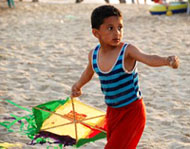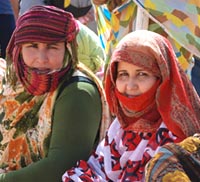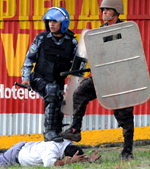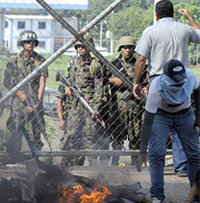
Does Fiji Water Legitimize a Dictatorship?
Source: Mother Jones
The internet cafe in the Fijian capital, Suva, was usually open all night long. Dimly lit, with rows of sleek, modern terminals, the place was packed at all hours with teenage boys playing boisterous rounds of video games. But one day soon after I arrived, the staff told me they now had to shut down by 5 p.m. Police orders, they shrugged: The country’s military junta had declared martial law a few days before, and things were a bit tense.
I sat down and sent out a few emails-filling friends in on my visit to the Fiji Water bottling plant, forwarding a story about foreign journalists being kicked off the island. Then my connection died. "It will just be a few minutes," one of the clerks said.





